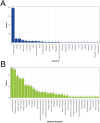Large language models in patient education: a scoping review of applications in medicine
- PMID: 39534227
- PMCID: PMC11554522
- DOI: 10.3389/fmed.2024.1477898
Large language models in patient education: a scoping review of applications in medicine
Abstract
Introduction: Large Language Models (LLMs) are sophisticated algorithms that analyze and generate vast amounts of textual data, mimicking human communication. Notable LLMs include GPT-4o by Open AI, Claude 3.5 Sonnet by Anthropic, and Gemini by Google. This scoping review aims to synthesize the current applications and potential uses of LLMs in patient education and engagement.
Materials and methods: Following the PRISMA-ScR checklist and methodologies by Arksey, O'Malley, and Levac, we conducted a scoping review. We searched PubMed in June 2024, using keywords and MeSH terms related to LLMs and patient education. Two authors conducted the initial screening, and discrepancies were resolved by consensus. We employed thematic analysis to address our primary research question.
Results: The review identified 201 studies, predominantly from the United States (58.2%). Six themes emerged: generating patient education materials, interpreting medical information, providing lifestyle recommendations, supporting customized medication use, offering perioperative care instructions, and optimizing doctor-patient interaction. LLMs were found to provide accurate responses to patient queries, enhance existing educational materials, and translate medical information into patient-friendly language. However, challenges such as readability, accuracy, and potential biases were noted.
Discussion: LLMs demonstrate significant potential in patient education and engagement by creating accessible educational materials, interpreting complex medical information, and enhancing communication between patients and healthcare providers. Nonetheless, issues related to the accuracy and readability of LLM-generated content, as well as ethical concerns, require further research and development. Future studies should focus on improving LLMs and ensuring content reliability while addressing ethical considerations.
Keywords: ChatGPT; artificial intelligence; deep learning; large language models; machine learning; patient education.
Copyright © 2024 Aydin, Karabacak, Vlachos and Margetis.
Conflict of interest statement
The authors declare that the research was conducted in the absence of any commercial or financial relationships that could be construed as a potential conflict of interest.
Figures
Similar articles
-
The Role of Large Language Models in Transforming Emergency Medicine: Scoping Review.JMIR Med Inform. 2024 May 10;12:e53787. doi: 10.2196/53787. JMIR Med Inform. 2024. PMID: 38728687 Free PMC article.
-
Evaluating the Effectiveness of Large Language Models in Providing Patient Education for Chinese Patients With Ocular Myasthenia Gravis: Mixed Methods Study.J Med Internet Res. 2025 Apr 10;27:e67883. doi: 10.2196/67883. J Med Internet Res. 2025. PMID: 40209226 Free PMC article.
-
Assessing large language models as assistive tools in medical consultations for Kawasaki disease.Front Artif Intell. 2025 Mar 31;8:1571503. doi: 10.3389/frai.2025.1571503. eCollection 2025. Front Artif Intell. 2025. PMID: 40231209 Free PMC article.
-
Large Language Models in Worldwide Medical Exams: Platform Development and Comprehensive Analysis.J Med Internet Res. 2024 Dec 27;26:e66114. doi: 10.2196/66114. J Med Internet Res. 2024. PMID: 39729356 Free PMC article.
-
Challenges and barriers of using large language models (LLM) such as ChatGPT for diagnostic medicine with a focus on digital pathology - a recent scoping review.Diagn Pathol. 2024 Feb 27;19(1):43. doi: 10.1186/s13000-024-01464-7. Diagn Pathol. 2024. PMID: 38414074 Free PMC article.
Cited by
-
Navigating the potential and pitfalls of large language models in patient-centered medication guidance and self-decision support.Front Med (Lausanne). 2025 Jan 23;12:1527864. doi: 10.3389/fmed.2025.1527864. eCollection 2025. Front Med (Lausanne). 2025. PMID: 39917061 Free PMC article.
-
Evaluating the impact of AI-generated educational content on patient understanding and anxiety in endodontics and restorative dentistry: a comparative study.BMC Oral Health. 2025 May 7;25(1):689. doi: 10.1186/s12903-025-06069-0. BMC Oral Health. 2025. PMID: 40335999 Free PMC article. Clinical Trial.
-
Artificial intelligence-enabled precision medicine for inflammatory skin diseases.ArXiv [Preprint]. 2025 May 14:arXiv:2505.09527v1. ArXiv. 2025. PMID: 40463698 Free PMC article. Preprint.
-
Advancing large language models as patient education tools for inflammatory bowel disease.World J Gastroenterol. 2025 May 28;31(20):105285. doi: 10.3748/wjg.v31.i20.105285. World J Gastroenterol. 2025. PMID: 40495941 Free PMC article.
-
A scoping review of natural language processing in addressing medically inaccurate information: Errors, misinformation, and hallucination.J Biomed Inform. 2025 Jul 22:104866. doi: 10.1016/j.jbi.2025.104866. Online ahead of print. J Biomed Inform. 2025. PMID: 40706945 Review.
References
-
- Open AI . (2024). Available at: https://openai.com/index/hello-gpt-4o (accessed 2024).
Publication types
LinkOut - more resources
Full Text Sources


